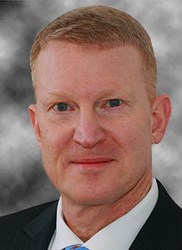A Witness To The History of Outsourcing
By Louis Garguilo, Chief Editor, Outsourced Pharma

Joe Guiles seems too young and mild-mannered to have been at the outbreak of a revolution that began many years ago. But he witnessed firsthand the inception of what would become the complete penetrability of outsourcing throughout the drug industry. It started in the late 1980s when Eastman Kodak purchased Sterling-Winthrop. The new owners subsequently sold the drug franchise to Sanofi, which did something quite unusual: divested the entire R&D program.
“One’s career path is often dictated by the economic drivers of the industry,” says Guiles in retrospect. “The first organization I worked for kind of started the fragmentation pattern of large pharma selling and acquiring assets, and along with it, the whole R&D outsourcing model.”
Guiles has been part of the history of outsourcing ever since. From Sterling-Winthrop, he moved to other pharma companies, a biotech that went through a successful IPO, a university where he learned the lessons of tech transfer and licensing, before what might have seemed inevitable from the start, joining a CMO a few years ago.
Currently director of process development at Medivation, Guiles says he is looking forward to talking about what he has learned of our industry at Outsourced Pharma West Conference, November 10-11 in San Francisco.
“A key lesson I’ll share is to build relationships based on direct interaction,” says Guiles. “Successful customers of outsourcing are those who are often on the phone and visit the site to work with their service provider.” He continues, “I like to call it the ‘auto-pilot syndrome.’ Sponsors tend to think you sign the contract, have a bi-weekly update and conference call, and that is all you need. But that is not building a relationship.”
Guiles says employees at providers don’t often feel appreciated by the customer. “Think in terms of building trust, and motiving people to want to get up in the morning to think about your project first and foremost, not somebody else’s.” Guiles recommends getting to know those who might work on your project before you select the vendor. “For me, if I think a firm has a particularly strong individual or group of individuals, I try to get them on my project. When all is said and done, the success of projects is heavily dependent on the problem-solving skills of the people doing the work. I try to get the ‘A Team.’”
As an example, Guiles says workers need to have a skillset equal to the level of complexity of a manufacturing project. “If you have a fifteen step semi-synthetic natural product with a couple of chiral centers, you better be sure the CDMO won’t be learning on the job.”
About his joining the “A Team” at Outsourced Pharma West, Guiles says, “Two things really draw me to this conference. First, the breadth of the show is wide enough so that everybody who touches outsourcing, including people who might just be responsible for that budgetary area, will get a chance to hear about best practices and lessons learned form their fellow industry leaders. And they’ll feel free to speak up and ask questions.”
The “cultural” aspect is the second draw for Guiles. “The conference will naturally take on the perspective of the West Coast industry. The mix and mindset can be different from the East Coast; the approach to pipeline strategy and managing outsourcing of development and manufacturing is reflected in a somewhat more open decision-making process. I think the conference will bare that out just by bringing together attendees from the various Western states of the U.S.”
It is the good fortune of all of us attending Outsourced Pharma West that Guiles, situated in San Francisco, is once again right in the middle of an important industry event.
Get more information on Outsourced Pharma West Conference And Exhibition
